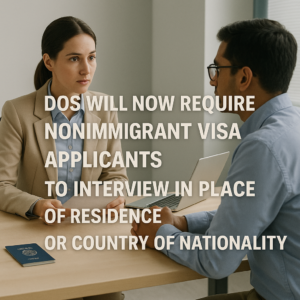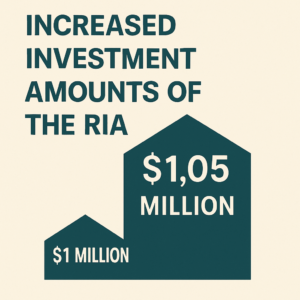A 214(b) refusal in U.S. immigration law refers to a specific section of the Immigration and Nationality Act (“INA”) that is often cited when a U.S. consular officer denies a nonimmigrant visa application. This section applies primarily to individuals applying for visitor visas (B-1 for business visitors and B-2 for tourists) but can also be relevant to other nonimmigrant visa categories such as F-1, E-2, and L-1..
When a consular officer issues a 214(b) refusal, it means the officer believes the visa applicant did not sufficiently demonstrate his or her ties to their home country and that they do not have a strong reason to return after their temporary visit to the United States. In essence, the consular officer is concerned that the applicant may overstay their visa and attempt to remain in the U.S. illegally.
Common factors that can lead to a 214(b) refusal include:
- Lack of Strong Ties: The applicant may not have strong ties to their home country, such as family, employment, property, or other significant connections that would encourage their return.
- Insufficient Financial Resources: The consular officer may believe that the applicant does not have sufficient financial resources to support themselves during their visit without seeking employment in the U.S.
- Previous Immigration Violations: If the applicant has a history of overstaying visas or violating U.S. immigration laws, it can contribute to a 214(b) refusal.
- Incomplete Documentation: Incomplete or inaccurate documentation provided by the applicant can also result in a refusal.
It is important to note that a 214(b) refusal does not necessarily mean that the applicant is ineligible for a U.S. visa forever. It simply means that at the time of applying, they were unable to establish their eligibility for the specific visa category at that particular time of the application. Applicants can re apply for a visa with additional documentation or evidence to address the concerns raised by the consular officer or when there is a new purpose to go to the U.S. or a change in their personal circumstances.
Each visa application is evaluated on a case-by-case basis, and the burden of proof is on the applicant to demonstrate their eligibility. Consulting with an immigration attorney or seeking guidance from the U.S. Embassy or Consulate can be helpful for individuals who have received a 214(b) refusal and wish to reapply.
For more information on a 214(b) refusal, you can visit us at our website or contact us at info@enterlinepartners.com and speak with a U.S. immigration attorney in Ho Chi Minh City, Manila and Taipei.
Ho Chi Minh City, Vietnam Office
146C7 Nguyen Van Huong St, Thao Dien Ward,
District 2, Thu Duc City
Ho Chi Minh City, Vietnam
Tel: +84 933 301 488
Email: info@enterlinepartners.com
Facebook: Enterline & Partners – Dịch vụ Thị thực và Định cư Hoa Kỳ
YouTube: @EnterlineAndPartnersConsulting
Website: http://enterlinepartners.com
Manila, Philippines Office
Tel: +63 917 543 7926
Email: info@enterlinepartners.com
Facebook: Enterline and Partners Philippines
Website: https://enterlinepartners.com/language/en/welcome/
Copyright 2023. This article is for information purposes only and does not constitute legal advice. This article may be changed with or without notice. The opinions expressed in this article are those of Enterline and Partners only.








